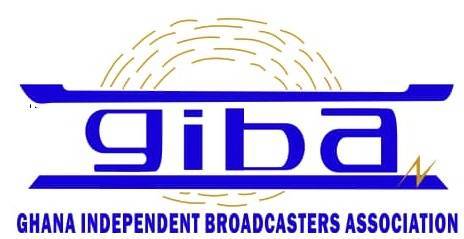CORONA VIUS RESPONSE
GIBA member stations actively covering the COVID-19 related health concerns of their community often need to address complex health care issues.
As broadcasters, they are called upon to provide information to their constituents. This requires them to more often than not be on the frontlines of emergency situations, sometimes taking risks in order to provide their communities with critical information. GIBA endeavors to keep abreast with guidelines being provided by the relevant authorities and relay such information, including encouraging all members to adhere to stated guidelines in order to keep staff safe.
Critical Guidelines:
• Minimize health risk to employees
o Only essential media staff should be deployed during this period and should carry relevant media company photo identification documents. All other staff must stay home.
• Where possible, a branded vehicle must be used in addition to guarantee easier passage from the security operatives during this period.
• Ensure plans are in place should employees be on leave of absence, quarantined or infected.
• Ensure alternative arrangements with suppliers and customers so that business operations can continue
• Members should endeavor to make contact for confirmation with the relevant government and health authorities, partners in all health care inquiries, actions and decisions. For more information call +233 55 843 9868 / +233 50 949 7700 and for emergencies only, 112.
Communication:
Does our station’s overall communication to field crews stress common sense preventative actions such as:
• Wash your hands with soap and water before touching anything including your eyes, nose and mouth
• Cover your mouth and nose when you cough or sneeze
• Disinfect the objects and surfaces you touch.
• If you are sick, stay home and avoid crowds and contact with others.
Minimize the risk of premises and staff becoming a node of transmission
• Protection:
o Are we providing our teams with appropriate supplies?
o Who is responsible for providing hand sanitizer, antiseptic wipes and other disinfectants in all vehicles?
o What hand hygiene should be performed when entering the vehicle?
o Are we providing our field crews with the necessary training and information?
o Are authorities recommending wearing masks and/or gloves?
o Do we have N95 grade masks/respirator for our team to wear when the situation or location calls for higher grade protection?
o Should the respirator be worn at all times outside of the station?
o Have our field crews been trained in how to fit and dispose of the appropriate masks?
o Can we interview people from six feet away to keep a safe distance?
o Can we do some interviews remotely (Skype, Facetime, Zoom, etc.)?
o Can we ask people who are on location to safely shoot video for our use?
Evaluation:
• Is the location safe, based on common sense, for our field crew to visit?
• Is there a warning about coronavirus cases in that specific location?
• What guidance are health care authorities providing for that location?
• Have the people we may talk to, had any positive test results indicating the presence of the coronavirus?
• Has an interviewee who had the coronavirus been cleared by health authorities to be in public?
• Which local medical professionals/authorities/emergency medical services (EMS) can provide us with information?
• Have field crews been told of how they can do field evaluations to stop production?
• Do they know the symptoms and risk factors for the coronavirus?
• How can we brief our field crews on safety procedures and evaluation?
• If crews in the field start to feel sick, who do they call?
Prevention:
• Will field crews be asked to wash their hands before entering the building?
• What vehicle interior signage can remind crews to avoid touching their faces?
• Will field gear be cleaned at the end of each shift?
• Will vehicles be cleaned at the end of each shift?
• What care will be given to microphones used by the field crew?
• If crews feel sick in the field, do they return to the station or head immediately to medical providers?
CONCLUSION
• Members should refer to the latest health advisories issued by MOI, MOH, GHS and other government agencies as the situation evolves.
• Members should implement appropriate measures in accordance with the latest advisories published by MOH, GHS, MOI and other government agencies
• These guidelines, like all current health care advisories, is based on current knowledge of COVID-19.
• As the Ministries of Information and Health as well as the Ghana Health Service indicate in all guidelines they provide, when additional information becomes available about the virus, how it spreads and how severe it is, these guidelines may be updated.
• Members are encouraged to work closely with health officials to determine a course of action for their employees and business operation.
• For more information call +233 55 843 9868 / +233 50 949 7700 or the GIBA Secretariat
